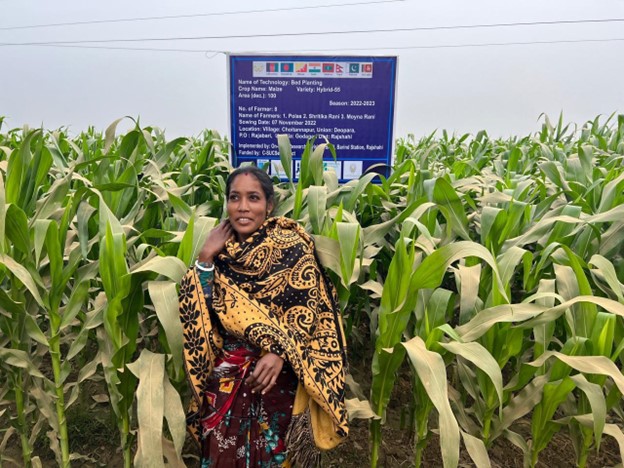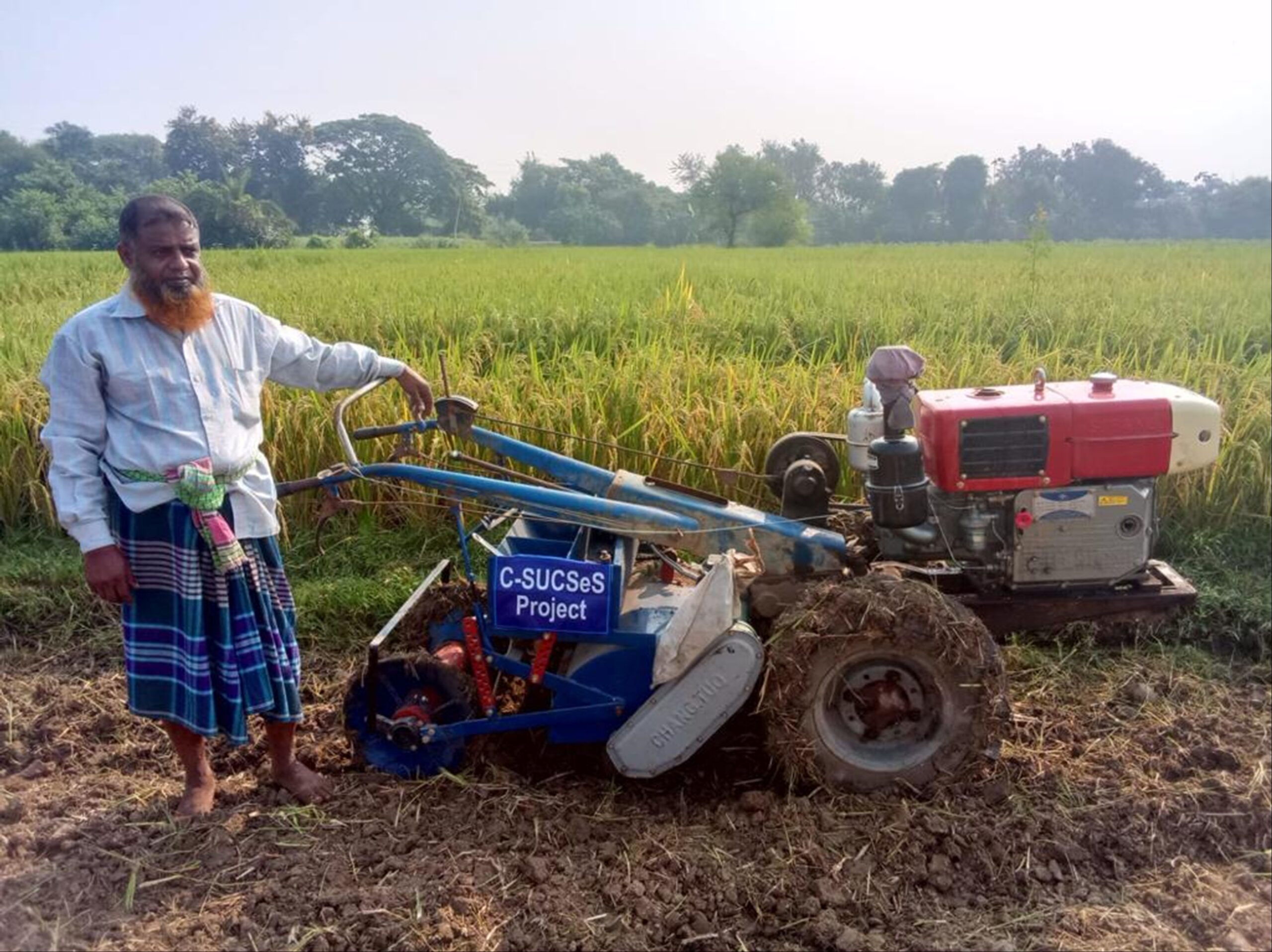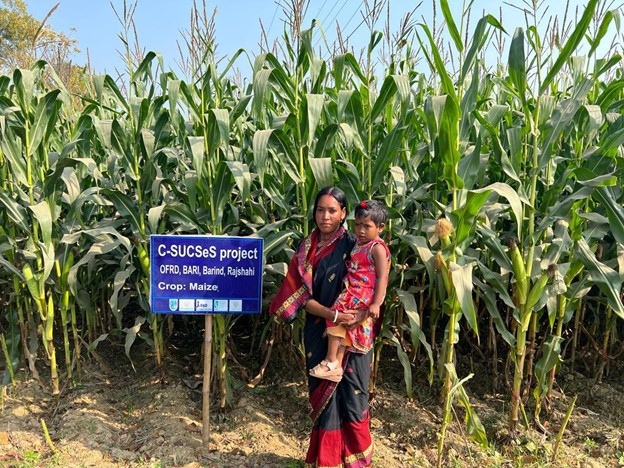In the sub-tropical, drought-prone landscape of the High Barind Tract in Rajshahi, Bangladesh, where irrigation water scarcity and shifting climate patterns increasingly threaten the traditional farming—Smritika Akka, a woman farmer, stands out as a beacon of hope, resilience, and innovation. Her inspiring journey exemplifies how innovative farming techniques, through the power of climate-smart agriculture (CSA), can transform lives and landscapes while protecting the environment.
Smritika was among the earliest adopters of bed planting technology for maize cultivation in her community. Unlike traditional methods of sowing on flat beds that require multiple tillage passes and laddering before sowing, bed planting combines several operations—land preparation, bed formation, seed sowing, and fertilizer application—into a single pass. This innovation not only saves labor and fuel costs, but also supports water-smart, energy-smart, and knowledge-smart agricultural practices.
While many local farmers were hesitant to move away from traditional techniques, Smritika recognized the potential of this new method. She courageously participated in a participatory research trial led by the On-Farm Research Division of the Bangladesh Agricultural Research Institute (BARI) under the C-SUCSeS project, jointly funded by the International Fund for Agricultural Development (IFAD) and SAARC Development Fund (SDF). Motivated by the promise of water conservation, reduced input costs and improved productivity, she applied the technology on her small maize field—and the results were remarkable.

Smritika achieved impressive earnings from cultivating maize using the bed planting method. In 2022, she cultivated maize on 4 bighas (0.53 ha) of land, investing around Tk 40,000 in total cultivation costs. Her harvest yielded 6,400 kg of maize, bringing in a total profit of Tk 1,44,000.
Thanks to bed planting, Smritika saw a significant increase in maize yield while reducing both tillage and irrigation expenses. “This method saves tillage and irrigation costs,” she says. “It means less work, lower cultivation costs, less risk of waterlogging or crop damage, increased yield, and ultimately, more profit.”
This productivity improvement brought real change to Smritika’s life. With the additional income, she now enjoys a more generous lifestyle, invests in her children’s education, provides nutritious food for her family, and feels greater financial security. Her experience is a clear example of the tangible, life-changing impact of climate-smart farming.
But Smritika’s success goes far beyond her own household. She has become a local champion of CSA, actively encouraging neighboring farmers to adopt bed planting and similar practices. Through informal discussions and farm visits, she shares her knowledge, motivates others—especially women—and fosters a growing community of climate-smart practitioners.

Farmers inspired by Smritika have begun to see similar benefits:
- Higher yields compared to traditional methods
- Lower tillage, irrigation, and labor costs
- Greater resilience to climate shocks and variability
Importantly, Smritika’s farming practices also benefit the environment. By using less water and reducing tillage, she helps conserve groundwater, reduce fuel use and greenhouse gas emissions, and preserve soil health. These practices not only make farming more profitable today, but also protect the land for future generations.
Today, Smritika is much more than a successful farmer—she is a leader, innovator, and role model. Her story is one of hope, empowerment, and transformation, showing how investing in women farmers and promoting CSA can build resilience, strengthen food security, and ensure a sustainable future.
Her journey is proof that when farmers have the right tools, technologies, and support, they do not just adapt to climate change—they lead the way forward.
Apurbo K Chaki is a Senior Scientific Officer, Bangladesh Agricultural Research Institute (BARI) and Associate National Focal Point, C-SUCSeS project (Bangladesh); Shakhawat Hossain is a Senior Scientific Officer of BARI; Kawsar Uddin Ahammad is a Chief Scientific Officer, BARI and National Focal Point, C-SUCSeS project (Bangladesh); Anisha Mohan is a Communications Specialist for South Asia Region with IFPRI.
C-SUCSeS is a four-year joint initiative between the South Asian Association for Regional Cooperation (SAARC) Agriculture Centre (SAC), IFPRI, the International Fund for Agricultural Development (IFAD) and SAARC Development Fund. The project fosters partnership and cooperation between the National Agricultural Research and Extension Systems (NARES) of the SAARC member states and IFPRI on the Climate-Smart Agriculture (CSA) agenda.



